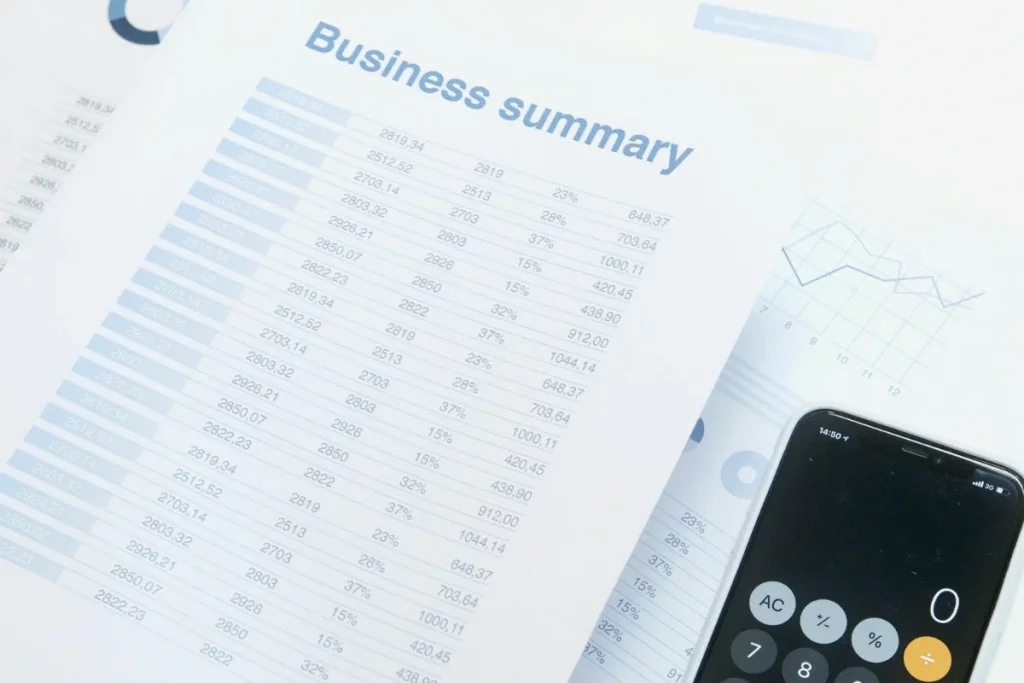A common term in small businesses, Seller's Discretionary Earnings (SDE) refers to a financial metric that measures the total financial benefit an owner gets from their business in a year.
You might have wondered how the way you handle your business’s funds for personal and business purposes could affect its financial health and profitability.
You don't have to worry anymore. In this guide, we discuss the following aspects to help you make data-informed decisions:
And much more!
How does Exitwise help? If you are looking to exit your business, we can help you do so while retaining high profits from the sale. We’ll connect you with the best M&A experts in your sector to help you evaluate your business. These experts can even help you sell your business faster.
We can guide you through the process of hiring and working with top M&A advisors, tax accountants, and investment bankers, resulting in a smoother M&A process.
Consult with us today to get started.

Seller's Discretionary Earnings is a cash flow-based financial metric that indirectly measures an owner's total economic benefit from their business in a year.
Abbreviated as SDE, the seller's discretionary earnings metric is used in the market-based business valuation model. The metric is ideal for businesses where the owner-operator is highly involved in daily operations.
The purpose of the metric is to showcase a business's potential to generate cash flows and, to some extent, profitability.
SDE is also called recast earnings or total owner's benefit.
However, the International Business Brokers Association (IBBA) recognizes seller's discretionary earnings (SDE) as the main name. The association also recognizes Seller's Discretionary Cash Flow (SDCF).
Here's the full SDE meaning in business as per IBBA:
The earnings of a business before the following components or elements:
All these elements go into calculating the SDE, depending on their presence. Some businesses may not have some of these elements, meaning the formula used to calculate their SDE could be slightly different (more on the formula later).

The SDE is a crucial metric when selling a small business as it helps stakeholders make sound data-informed decisions.
Here are the different roles the metric fulfills for various persons of interest in the M&A process:

As mentioned earlier, the IBBA recognizes the Seller's Discretionary Cash Flow (SDCF) as an alternative name for the Seller's Discretionary Earnings (SDE).
Cash flow is the movement of money in and out of a business over a specific period. You can categorize cash flow into:
SDE is an indirect measure of cash flow for owner-operated businesses. As such, SDE becomes one of the many ways to determine cash flow.
However, other cash flow calculations are more in-depth and may include debt servicing, capital expenditure, and changes in working capital.
Technically, SDE forms the basis for calculating the true cash flow of a business.
The SDE shows the cash available to an owner-operator after all operating expenses are covered, but it does not factor in capital expenditures or financing costs like debt repayments.
To get the true cash flow, you subtract any capital expenditures or financing costs from the SDE. The true cash flow shows the net amount of cash left over after paying all expenses and debts.

While they share some similarities as business valuation methods, SDE and EBITDA differ in various ways.
Here’s a quick overview of the SDE vs. EBITDA comparison:
SDE
EBITDA
The SDE primarily considers the total financial benefit potentially available to the owner rather than the business’s ability to generate profits.
EBITDA is short for Earnings Before Interest, Taxes, Depreciation, and Amortization. The metric measures how a business generates profits from its core operations.
SDE considers non-operating income and expenses, non-recurring income and expenses, and owner's salary.
EBITDA does not consider non-operating income and expenses, non-recurring income and expenses, and owner's salary
SDE is used for smaller, owner-operated businesses with less than $1M in annual revenue.
EBITDA is used to value medium and large businesses with over $1M in annual revenue.
Note: Adjusted EBITDA typically considers the owner's salary, non-operating income and expenses, and non-recurring income and expenses.
If you want to estimate how often your business is worth its EBITDA or revenue, you can use the Exitwise online business valuation calculator.

We've mentioned that the Seller's Discretionary Earnings formula may change from one business valuation to another.
Different businesses can have different SDE elements or label them differently. You can use the two basic formulas below:
1. SDE = EBT + Owner’s Salary + Other Owner Benefits + Discretionary Expenses + Interest Repayments + Depreciation + Amortization
(In this formula, we assume you have no interest income and have paid for personal benefits like health insurance using business finances.)
2. SDE = Pre-Tax Income (EBT) + Owner’s Salary + Interest Expense, net + Depreciation + Amortization + Discretionary Expenses + Non-Recurring Expenses
(In the second formula, we assume your interest repayments exceed the interest income and that you haven’t paid any benefits, such as health insurance, using funds from the business.)

In an SDE calculation for a small business, start with the income before taxes (EBT) and then add the other elements available.
Here's how to calculate SDE when valuing a small SaaS business with the following annual metrics:
Apply the SDE formula:
SDE = EBT + Owner’s Salary + Other Owner Benefits + Discretionary Expenses + Interest Repayments + Depreciation + Amortization
SDE = $630,000 + $70,000 + $15,500 + $8,000 + $12,000 + $6,000 + $4,000
SDE = $745,500

Once you have calculated the SDE, the business valuation process is simple.
Here's how to proceed:
Business Valuation = SDE x SDE Multiple
= $745,500 x 7.1 = $5,293,050
While calculating the business value can be easy, getting the SDE calculation right isn't easy.
You must also have to negotiate with your potential buyer and agree on what you should classify as one-time incomes and expenses or how the owner's salary should be adjusted.
The best way to handle these situations is to work with M&A experts, such as tax accountants and advisors, who can help streamline the valuation and sale.
We can help you find, recruit, and work with top-rated industry-specific M&A experts to guide you throughout the M&A process.
Reach out to our team at Exitwise today to optimize your exit.

Let's check out some questions business owners usually ask about SDE in a small business sale:
No. You can't use SDE for all types of business valuations because each type has its fundamental valuation metric.
The SDE is ideal for smaller businesses that have high owner-operator involvement.
When determining the SDE, the owner's salary is usually adjusted to the current market rates to remove any excess compensation the owner receives from the business.
In cases where the business owner also owns the premises and pays themselves more rent, the rent is also adjusted to current market rates. (The owner may have inflated the rent to reduce taxable income).
A higher SDE can mean a higher valuation and selling price. The vice versa also applies: a lower SDE can mean a lower valuation and selling price.
A higher SDE can also help reduce the time you would take to sell the business. Potential buyers can see a higher SDE as evidence that your business will generate dependable cash flows, increasing the chances of a faster sale.
Let us help you hire and manage your dream M&A experts who can help you negotiate a great SDE-based business sale. Check out how our proven process works.
No. SDE calculations are not standard across industries. Best practices for adjusting the owner's salary can vary from industry to industry.
Now that you know what SDE is in business, you might want to use it to assess how it could impact your business’s financial health.
If your SDE is lower than the prevailing market rates in your industry, you'll want to employ various methods to raise it.
Increasing the metric can improve your business's value, boosting your profitability when you decide to sell.
You can work with us at Exitwise to find and collaborate with top M&A experts in your industry to help you not only with the SDE calculation but also with insights on how to boost the value of your business.
The experts can also help you sell your business at the best price possible.
Schedule a no-obligation consultation with our team today to optimize your business exit strategy.
Let Exitwise introduce, hire and manage the best, industry specialized, investment bankers, M&A attorneys, tax accountants and other M&A advisors to help you maximize the sale of your business.

